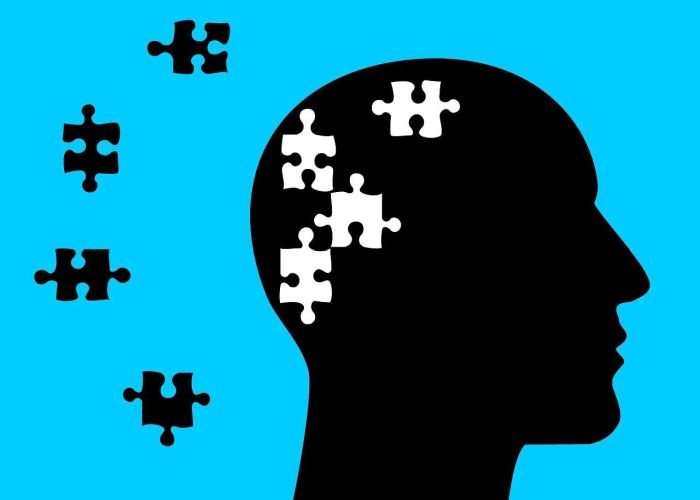

|
|

Image Source: Pixabay
March 8 2022 - To say the least, the last few years have been challenging. We’ve faced civil unrest, increasing violence in our cities, global economic recessions, and the greatest public health crisis in modern history. It’s been tough, and many of us are traumatized.
Even before the world changed, though, employers, managers, and human resources (HR) leaders alike were beginning to recognize the critical role that the mental well-being of employees plays in the performance and culture of your organization. In the wake of the crises of recent years, that role is more important than ever.
For this reason, the mental health of your workforce must be a top priority.
The Connection between Mental Health and Productivity
There is increasing evidence to suggest that there is a direct and immediate link between your employee’s mental health and their work performance. For example, research suggests that chronic workplace stress significantly undermines both the health and the productivity of employees.
It’s not difficult to understand why; when you’re under stress, your brain and body are in a constant state of arousal. You become irritable, easily distracted, and impulsive. The evolutionary fight-or-flight response that stress incites means that you’re less able to focus or think clearly and rationally.
Not only does this compromise one’s ability to perform well at work in the short term, but, over time, this state of hyperarousal, this inundation of stress hormones and the neurobiological stress response, takes a toll on physical health. The immune system is compromised. The cardiovascular system is put at risk.
In other words, stressed and anxious employees are likely to get sick more often and to recover more slowly. Thus, your company will not only experience underperformance from your employees, but you’re also going to have higher rates of absenteeism, all of which will significantly reduce productivity.
Mood Disorders and Substance Abuse
As has been seen, when your employees’ mental well-being isn’t sufficiently nurtured, they’re at heightened risk for stress, anxiety, and the health and productivity effects that result. But these are by no means the only harms that can arise from neglecting your employees’ mental health.
Without proper mental healthcare, employees may develop mood disorders, such as depression, or behavioral disorders, such as addiction. This risk is particularly great in these turbulent times, as many of your employees may be dealing with the lingering impacts of trauma.
For example, your employees may have lost a relative or loved one during the pandemic, or they may have endured significant financial hardships during the lockdown, perhaps resulting in the loss of a home or bankruptcy.
Even if your employees have not endured such life-altering events, however, there is no doubt that the prolonged anxiety, uncertainty, and instability of these last years have left their mark on your workers. Those marks will inevitably manifest in some way, most often in behavioral changes that can significantly undermine your employee’s quality of life, their workplace performance, and even their engagement with colleagues and clients.
Your employees, for example, may have turned to alcohol or drugs to deal with the emotional upheaval of the preceding years. This is not only highly detrimental to your employee’s health and happiness, but it can also ravage their relationships, including relationships in the workplace.
For instance, alcohol misuse may lead to volatile, hostile, or untrustworthy behavior. Alcohol dependency may lead your employees to miss work or deadlines. They may act out with coworkers and customers, all of which can poison the workplace environment and produce a devastating ripple effect on clients and staff.
What Is To Be Done
Given the vast and varied harms that failing to prioritize employees’ mental health can yield, it’s imperative that business leaders be proactive. Fortunately, employers have a range of options to help employees nurture their mental health.
Because addiction and mood disorders are such a significant concern, particularly in these challenging times, a comprehensive health benefits package that includes mental health and addiction treatment coverage is a must. In addition, employers can make a few operational adjustments to facilitate employees’ work/life balance, such as offering flex time and remote work options and increasing opportunities for earning paid time-off (PTO).
Further, employers can take definitive measures to improve workers’ quality of life, both inside and outside of the office. Creating green spaces on the business campus can help reduce employee stress and support an overall sense of well-being. Likewise, providing employees with lifestyle benefits, such as discounted memberships to gyms and athletics clubs, coupons for spa treatments or fine dining, or even vacation and retreat packages, can help employees recenter, refocus, rest, and rejuvenate.
The Takeaway
Putting your employees’ mental health at the top of your priorities list isn’t just a luxury, it’s a necessity. If you want to preserve your employees, productivity, and performance, as well as to protect the overall environment and culture of the workplace, then you need to offer solutions to support your employees’ mental well-being. Not only will your workers thank you for it, but so too with their colleagues and clients.

Jori Hamilton is a freelance writer residing in the Northwestern U.S. She covers a wide range of subjects but takes a particular interest in covering topics related to business productivity, recruitment, HR, and marketing strategies. To learn more about Jori, you can follow her on Twitter and Contently.
HRM Guide makes minimal use of cookies, including some placed to facilitate features such as Google Search. By continuing to use the site you are agreeing to the use of cookies. Learn more here
|
| Privacy Policy |
|
|